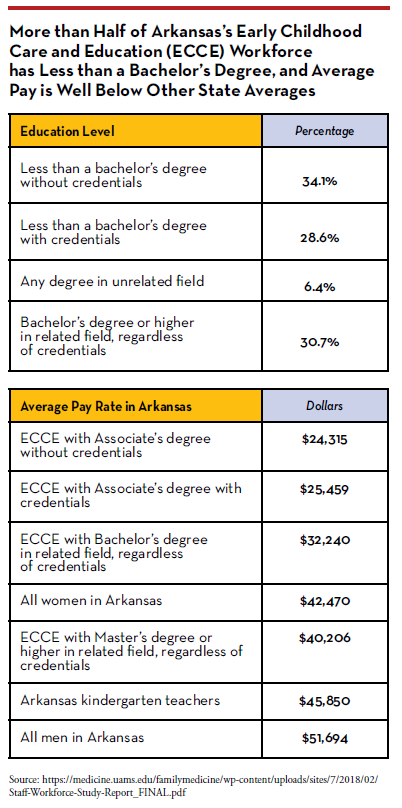Early Childhood Education
Positive, encouraging adult-child interactions are important to high-quality early learning, both at home and classroom. Children who receive high-quality early childhood education (ECE) are better prepared to succeed in K-12, are more likely to go on to college, and see improved outcomes as adults. Because of the underfunding of the ECE system and the resulting low wages, the ECE workforce was already facing major challenges before the pandemic. Over the last several years, the sector has reported high levels of stress and elevated depression risk, difficulty attracting and retaining staff, lost revenue, and difficulty maintaining health and safety standards. COVID relief funds may have helped temporarily, but further support for the ECE workforce is necessary.
Build the Birth to Age 3 System
The first three years of a child’s life affect all future learning, behavior, and health. This time period is the most sensitive for a child’s developing brain and body, yet many families face substantial challenges finding child care during these years. Statewide, just 1 in 10 working parents can find quality, licensed care for their infant or toddler. This leads to many parents deciding to not reenter the workforce until their child reaches Pre-K. Growing our infant and toddler system would have an immediate impact on families across the state and would set our young children up for success in the later years.
Health and Education Linked
Ensuring that children receive developmental screenings, referrals, and support services that lead to assessments and treatment improves outcomes for learning and healthy brain development. Infants and toddlers should have access to mental health screenings so that parents and caregivers can address issues early on by nurturing social-emotional learning. The Early and Periodic Screening, Diagnostic and Treatment (EPSDT) provides comprehensive and preventative health services for children under 21 enrolled in Medicaid. For ages birth to 9 months, Arkansas Medicaid requirements cover only five of seven EPSDT visits recommended by the American Academy of Pediatrics Bright Futures program.


You must be logged in to post a comment.